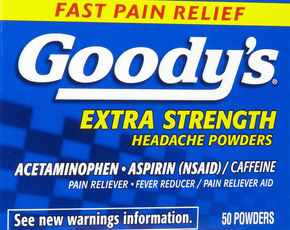Are Salicylates Bad For You?
Short answer
Salicylates are safe for most people. If you’re allergic to aspirin, salicylates might trigger an adverse reaction. Other people believe that they’re sensitive to salicylates in their food.
'N' stands for neutral. Things placed into this category are (a) neither good nor bad for you, or (b) lack the necessary evidence to reach any conclusions.
View Full Grading System
Category 'A'
Very healthy and numerous health benefits. Side effects are rare. Things rated an 'A+' are typically necessary for survival (for example, water).
Very healthy and numerous health benefits. A few harmful qualities may be associated, but only under certain circumstances such as an allergic reaction.
Very healthy and numerous health benefits. Harmful qualities may be associated, but aren't usually serious.
It is important to note that even the best things in life can become bad in immoderate amounts. So, although something may be rated an 'A+', overconsumption/overdoing can bring unwanted effects.
Category 'B'
Very beneficial to your health. Things rated a 'B+' may have a few harmful qualities to pay attention to.
Overall beneficial to your health. Things rated a 'B' may have some harmful qualities to pay attention to.
More beneficial to your health than not. However, harmful qualities are most likely associated and shouldn't be overlooked.
The main difference between category 'A' and category 'B' is the harmful qualities typically present in 'B' items. Serious side effects are usually uncommon, but are still possible and should be taken note of.
Category 'C'
Both beneficial and harmful qualities associated. Things rated a 'C+' are typically a bit more on the beneficial side. Still, moderation is important.
A fairly even ratio of beneficial and harmful qualities. Moderation is important. Very general topics that can lean towards both sides of the spectrum will be placed here as well. Rice, for example, can be good or bad depending on the type.
More harmful than beneficial. Side effects are common, especially when consumed/done excessively. Moderation is very important.
Category 'C' usually denotes to both good and bad qualities. When it comes to this category, it is important to keep this word in mind: moderation.
Category 'D'
Harmful to your health. Although benefits may be associated, the bad most likely outweighs the good. Moderation is very important.
Harmful to your health. A few benefits may be associated, but the bad outweighs the good. Moderation is extremely important.
Harmful to your health. Very few, if any, benefits are present. Things in this category should be avoided as much as possible.
Category 'D' is typically for things that are more harmful than beneficial. While consuming/doing something unhealthy once in a blue moon shouldn't hurt, we definitely recommend eliminating 'D' items as a regular part of your routine/diet.
Category 'F'
Category 'F' is for things that fail to bring anything beneficial to the table, and are very harmful to your health. We recommend completely avoiding anything in this category. Long-term side effects of 'F' items are usually very serious.
Category 'N'
'N' stands for neutral. Things placed into this category are generally (a) neither good nor bad for you, or (b) lack the necessary evidence to reach any conclusions.
Long answer
Salicylates are a naturally-occurring chemical. They play an important role in the immune system of plants and have natural preservative qualities. They help the plants to guard against hungry insects and dangerous varieties of bacteria.
Salicylates are found in food, medicine, makeups, preservatives, and household products. They’re found in many different plants. One form of salicylate that you may have used is aspirin.
Some people have a strong allergic reaction to aspirin. You may feel itchy, flushed, or sweaty. Hives can form. A reaction to aspirin can bring on an asthma attack as well.
Some people claim to be sensitive to salicylates that are present in food and other products as well. Coming into contact with those products, they claim, causes unpleasant symptoms that include rashes, shortness of breath, and low energy. There have been no studies so far that demonstrate adverse reactions triggered by salicylates apart from aspirin. Sensitivity to salicylates has been shown in some studies, although the science is not yet clear on how prevalent it is.
Salicylates are present in most plants. Because of this, salicylate-reduced diets are difficult to do in a safe and healthy way. If you're attempting one, it may be difficult to put together a diet that will deliver a low amount of salicylates while including the nutrients that you need. Speak to a nutritionist or an immunologist if you think you may be sensitive to salicylates and you're seeking to remove them from your diet.
Salicylate sensitivity is difficult to test for - so far, skin and laboratory tests won't show whether you're sensitive. Giving people aspirin in a controlled medical setting can establish whether you might have an adverse reaction. Speak to your doctor if you think you might have an adverse reaction to aspirin or if you're worried that your body's having trouble with the salicylates in your food.
Possible short-term side effects
- rashes
-
shortness of breath
-
low energy
-
itchy, flushed, or sweaty
-
hives
-
asthma attacks
Commonly found in
- herbs
-
vegetables
-
fruits
-
nuts
-
medicine (such as aspirin)
-
makeups
-
preservatives
-
household products
Benefits
- anti-inflammatory
-
antipyretic
-
pain relieving
Please turn your Ad Blocker off to see this content. Thank you!

 Approved by
Approved by 














